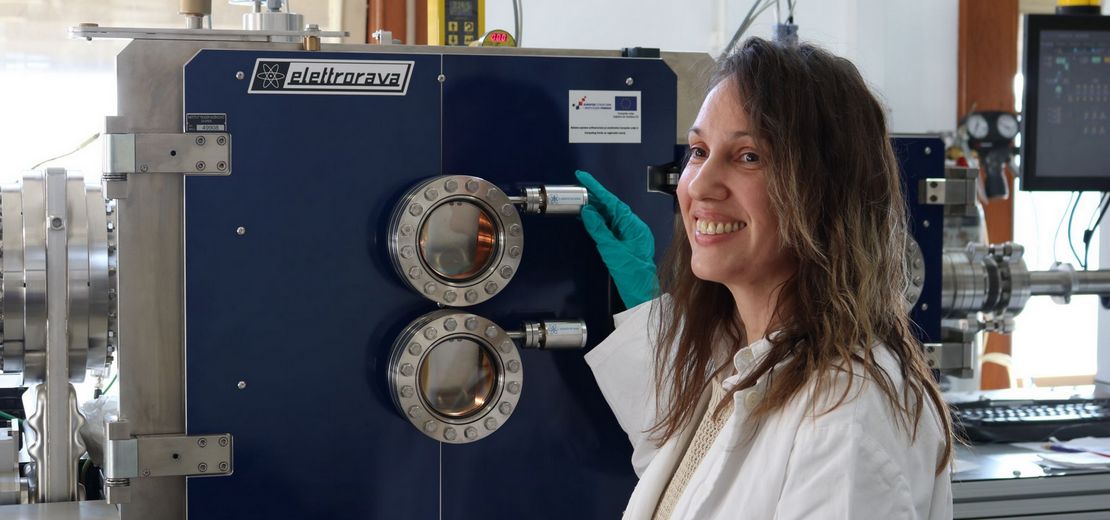At a press event hosted by the Ruđer Bošković Institute (IRB), participants reflected on the achievements since Croatia joined CERN in 2019. These include advancements in chip design, detector materials, and computing innovations, with applications in medicine, engineering, and electronics. The press event was held on the occasion of the CERN Info Day which include popular-science presentations and lectures for the researchers, partners, students and the general public.
"Croatia has fully capitalized on the benefits of Associate Membership," said Dr. Vuko Brigljević, national contact point for CERN activities. "Since 2022, our contributions have met the annual membership fee of 1 MCHF. This demonstrates not only our readiness for full membership but also the potential for even greater participation by our scientists and businesses."
Croatian companies have secured increasing numbers of CERN contracts, contributing to advanced research and infrastructure. In 2024, Croatian firms achieved contracts worth over 300,000 CHF for services ranging from manufacturing detector components to producing cooling systems and prototypes for advanced sensors. These partnerships highlight a strong synergy between Croatia’s industry and CERN’s cutting-edge science.
The collaboration has also provided Croatian researchers and educators access to unparalleled resources and learning opportunities.
Prof. Christoph Schäfer, Senior Adviser for Relations with CERN Non-Member States, emphasized that CERN, as the world’s leading particle research infrastructure, offers resources and facilities beyond the reach of any single nation. With 24 current member states and Slovenia set to join as the 25th next year, CERN exemplifies the power of collaboration in tackling complex, resource-intensive scientific challenges. Home to the world’s largest particle accelerator—a 27-kilometer marvel—CERN is already planning even greater advancements. By participating as an Associate Member and potentially advancing to Full Membership, Croatia secures access to this cutting-edge infrastructure, making CERN a central hub for its research endeavours in this field.
"For a smaller country like Croatia, CERN offers access to infrastructure and expertise that no single nation could afford," said Prof. Christoph Schäfer. "This partnership enables Croatia to grow scientifically, technologically, and economically, while preparing the next generation of scientists and engineers."
Educational programs such as the CERN Summer Student Programme and the National Teacher Programme have been pivotal. Croatian students and educators gain hands-on experience with world-class technologies, bringing valuable knowledge back to classrooms and laboratories. "CERN gives our students a chance to work with the world’s most advanced accelerators and detectors, preparing them for the global scientific stage," said Prof. Mirko Planinić, Dean at the Faculty of Science of the University of Zagreb.
Young researchers like Dr. Toni Šćulac of the Faculty of Scicnce of the University of Split are already making an impact. "At CERN, I worked on designing chips that identify key events among billions of particle collisions per second. This experience has been transformative, equipping me with knowledge and skills I wouldn’t gain elsewhere."
The Ruđer Bošković Institute has a long-standing collaboration with CERN, dating back to the 1980s, with contributions that span fundamental and applied research. Today, six RBI laboratories are actively involved in developing advanced materials and detectors essential for CERN experiments, capable of withstanding extreme conditions in particle colliders. These cutting-edge technologies not only support groundbreaking research on phenomena such as the Higgs boson and atomic nuclei but also have wide-ranging industrial applications. Additionally, through projects like AIDA-2020, RBI has become a transnational hub for detector testing.
"CERN strengthens our access to world-class science, technology, and industry," said RBI Director Dr. David M. Smith. "This partnership aligns perfectly with our mission to advance fundamental research, foster innovation, and connect science with the economy."
As Croatia looks toward full membership, the benefits are clear: greater access to CERN’s resources and projects, broader participation in cutting-edge research, and expanded opportunities for innovation to the companies. The partnership promises to propel Croatia’s scientific community and industry to new heights, solidifying its position on the global stage.




